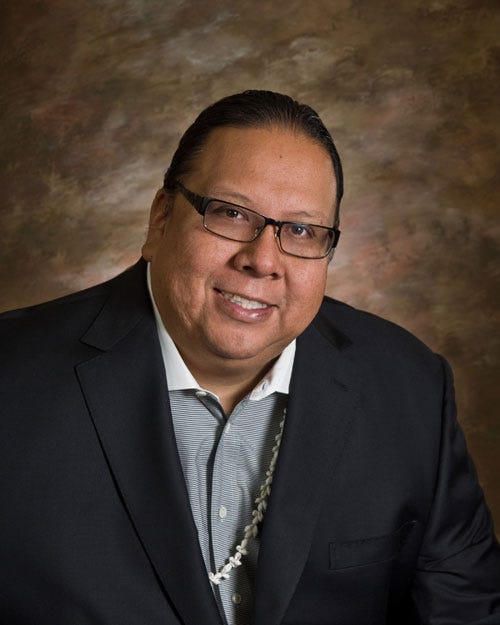The latest guest on the podcast is Tim Sandefur.
Tim is the Goldwater Institute Vice President for Legal Affairs.
We talked about the Indian Child Welfare Act (ICWA), along with a specific case: Gila River Indian Community v. Department of Child Safety.
The Gila River Indian Community (GRIC) should be familiar to my avid readers since it was previously featured as the reservation which granted sole custody to a registered sex offender.
After this conversation, I understand why it happened.
ICWA was passed in 1978, in response to an epidemic of Native American children being taken from their parents and placed with white folks.
Here is part of an Arizona Supreme Court decision, “Congress enacted ICWA in 1978 to address the removal of an alarmingly high percentage of Indian children from their Indian families by nontribal public and private agencies and the placement of such children in non-Indian foster and adoptive homes and institutions. See25 U.S.C. § 1901(4). In response to these concerns, ICWA provides a dual jurisdictional scheme over Indian child custody proceedings.”
While that sounds good in theory, in practice it allows tribes to take jurisdiction in the child protection and custody matters over any child who could qualify to be part of a Native American tribe.
Most tribe governors- along with them their child protection and court systems- assume that Native American children should be placed with Native American parents, regardless of the circumstances surrounding each case.
Meanwhile, ICWA creates a parallel universe where laws designed to protect children from abusers are applied differently.
For instance, Tim explained that in cases of repeated abuse or sexual molestation the states are not required to make what is referred to as “active effort” to return the child to the home; that’s different in ICWA and an “active effort” is still required even in cases of repeated abuse.
What is active effort?
“The active efforts rule requires more than just making services available. Nobody quite knows what it means. The Supreme Court said about ten years ago that it requires the government to actively stimulate a parent’s desire to be a parent, whatever that means, and it is not excused in cases of aggravated circumstances,” Tim stated, “and that means that states are required to return Indian children to abusive homes under the active efforts rule where they are not required to return white children and children of other races under the reasonable efforts rule.”
Meanwhile, if a case falls under ICWA it will likely wind up in Tribal court, nothing like our court systems, including a lack of a Bill of Rights.
Gila River Indian Community v. Department of Child Safety is an example of how ICWA can be abusive.
In that case a Native American mother took drugs while pregnant and her newborn daughter tested positive for drugs.
Here is how the Arizona Supreme Court explained it, “Having been prenatally exposed to amphetamines and opiates, A.D. was born in August 2014 in Arizona outside the Community’s boundaries. Five days after her birth, the Arizona Department of Child Safety (‘DCS’) removed A.D. from her mother, who is also a Community member, and placed her with Sarah H. and Jeremy H. (‘foster parents’).”
After living with her foster parents for some time, the couple wanted to adopt the girl.
Only then did GRIC try and step in. Here is more from the Arizona Supreme Court.
In March 2015, DCS moved to terminate the parental rights of A.D.’s mother and father and notified the Community. The Community requested that the child remain in her current placement until a suitable ICWA placement could be identified. In a June 2015 order, the court terminated the rights of A.D.’s parents and also found good cause to deviate from ICWA’s placement preferences. The Community did not appeal from that order
The foster parents moved to intervene, noting their desire to adopt A.D. The Community did not respond to the motion, and the court allowed the foster parents to intervene. On July 1, 2015, the foster parents petitioned to adopt A.D. After the court scheduled A.D.’s adoption for August 26, 2015, the Community successfully moved to stay the adoption proceedings.
In this case, the adoption was allowed, but it’s easy for such a case to sideways.
This sort of a scenario is currently playing out in the US Supreme Court in Brackeen Vs Haaland.
Here is part of the Wikipedia page for the case, “In June 2016, a 10-month-old Navajo boy was placed with Chad and Jennifer Brackeen, a former civil engineer and an anesthesiologist, respectively, after his Navajo mother (who lived in Texas) was found to be using drugs.”
In this case, the Navajo nation challenged the adoption and attempt to intercede to place the child with a member of their tribe.
One problem that Tim noted is that there are very few Native American foster parents.
He said that in Los Angeles County there is only one licensed Native American foster family.
As such, Native American kids are placed in non-Native foster families and then tribes step in after the child has grown accustomed and try and force a transition.
The case- Brackeen V Haaland- had its oral arguments earlier in November.
Tim said that we should not expect for this case to break in the US Supreme Court along conservative/liberal ideological lines.
He noted that Judge Gorsuch is generally favorable to Native American territorial arguments.
The SCOTUS blog had more.
Justice Elena Kagan also viewed Congress’ power over Native American affairs as very broad. “Plenary,” she told Texas Solicitor General Judd Stone, means “unqualified.”
Justice Samuel Alito worried aloud that Congress’ plenary power could be unlimited under the interpretation advanced by the federal government and a group of Native Americans tribes that are defending the law.
…
Chief Justice John Roberts offered a hypothetical involving a Native American baby without any extended family members available to take care of her, and a non-Native couple willing to adopt her. Does the priority of having Native American adoptive parents, Roberts asked, trump the best interests of the child?
Kneedler emphasized that Congress enacted ICWA precisely because of the long history of separating Native American children from their families. Congress was “concerned about the free-floating application of the ‘best interests of the child’ standard,” Kneedler said, and determined that it was in the best interests of Native American children to remain, when possible, with non-family members who are Native American rather than go to non-Native families.
But Kavanaugh and Barrett appeared unconvinced. Kavanaugh suggested that the “third preference” was not based on a political classification precisely because a Native American child could be placed with a family from a different tribe.
Barrett echoed this idea. This “third preference,” she suggested, treats the different Native American tribes as fungible.
Tim has also written about how he envisions reforming ICWA.
What, then, would an improved version of ICWA look like? The most important first step would be to eliminate the racial distinctions it currently imposes. ICWA requires that “Indian children”—which it defines as kids who could someday become tribal members, based solely on their biological ancestry—be placed in foster care or adoptive care with “Indian” adults. It also mandates a set of evidentiary and procedural rules for lawsuits involving these children that differ from those governing cases that involve white, Black, Asian or Hispanic kids. These rules should be replaced by race-neutral guidelines such as those that already exist in the federal Multi-Ethnic Placement Act, which forbids racial discrimination in adoption cases.
That’s not to say that matters involving race should be ignored entirely in cases involving children—but they cannot be a determinative factor. In Palmore v. Sidoti, the U.S. Supreme Court declared it unconstitutional for a state judge to order the removal of a child from a biracial couple on the grounds that the child might experience discrimination due to living with parents of different races. “The effects of racial prejudice, however real, cannot justify a racial classification removing an infant child from the custody of its natural mother,” the justices declared. But they did not rule out the possibility that racial considerations might factor into a judge’s overall consideration of a child’s best interests. The “effects of racial prejudice” might, under appropriate circumstances, justify concluding that a child is better off in one household rather than another. And the “best interests of the child” test, which evaluates all the circumstances relevant to a child’s needs, would include such considerations.
That “best interests” test, in fact, should be the cornerstone of any revised version of ICWA. As things stand now, ICWA actually overrides the “best interests” test for children deemed Indian and instead imposes a one-size-fits-all federal rule which requires that they be placed within the “Indian community”—even if that means placing them with members of a tribe not their own. In last week’s hearing, federal lawyers told the Supreme Court that this across-the-board mandate doesn’t eliminate the “best interests” rule, but instead represents Congress’ determination about what is in the best interests of Indian children. But the court has already declared such blanket presumptions of “best interests” unconstitutional. “Procedure by presumption is always cheaper and easier than individualized determination,” it said in Stanley v. Illinois. “But when, as here, the procedure forecloses the determinative issues of competence and care, when it explicitly disdains present realities in deference to past formalities, it needlessly risks running roughshod over the important interests of both parent and child.” A presumption that all children of one particular ancestry are best served by being placed with one particular kind of family is even worse; that’s not even a presumption—it’s a stereotype.
I reached out by email to the Governor of GRIC, Stephen Roe Lewis, but I received no response.















Share this post